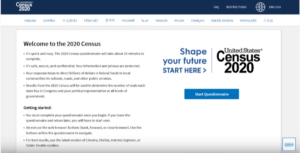Marie Cocco: The Pretense About Jobs
When it pays better to be old and retired than young and working, we can no longer indulge Bush's fantasy that the economy is on the right track.When it pays better to be old and retired than young and working, we can no longer indulge Bush’s fantasy that the economy is on the right track.
WASHINGTON — The problem isn’t Wal-Mart. Well, let’s just say it can’t only be Wal-Mart.
Not when the Census Bureau reports that Americans are essentially better off old and retired than young and working. Not when even the wages of college-educated workers — the cream of the labor market crop — are stagnant or falling, right along with the pay of those who work in the nation’s great factories or greet you in a big-box store as you enter in search of cheap sneakers.
Those who worked full-time, year-round last year saw their earnings, after inflation, fall — again. The White House trumpeted a different number from the latest census numbers. It boasted of a 1.1% overall increase in median household income.
Here is what the president and his political minions left unsaid: Almost all of that gain went to households headed by people 65 and older.
What does it mean to have an economy in which it pays more to retire than it does to work?
Economists are still puzzling over the gain in the incomes of the elderly, with an early consensus that it may well be a demographic glitch. As the oldest of the elderly, who tend to have the lowest incomes, die, the proportion of “young” elderly rises. These new retirees are more likely to work to supplement their Social Security benefits, and to have more income from savings.
For just about everyone else, the new numbers on the economy are another reminder that people who “work hard and play by the rules,” as Bill Clinton used to say, just can’t win. That’s true even for those who were supposed to score big in the so-called “new economy,” workers with a college degree.
A piece of parchment turns out to offer little protection against the gale-force winds of globalization and the padding of corporate profits at the expense of workers’ wages. The wages of college-educated workers rose by 0.3% between 2000 and 2005, according to “The State of Working America,” the annual compendium of data on employment released each Labor Day by the Economic Policy Institute. That’s the same wage growth earned by those with just a high school diploma or less.
For new graduates, the fruits of work were more meager still. Wages for college-educated men in entry-level jobs fell by 3.9% over the same period. For entry-level women with college degrees, wages fell 1.9%.
“We see people graduating with skills … not able to get a wage that was higher in 2005 than it was for their older brothers or sisters who graduated in the late 1990s,” says Lawrence Mishel, an author of the report and president of the liberal-leaning institute.
For a generation, blue-collar workers have suffered while their economic lifelines were shredded. First manufacturing jobs and the unions that helped make their workers middle-class disappeared, then wages dropped and corporate managers came to see benefits not as a reward for loyal work but as a cost to be cut. All through this, the country was told that a college degree or other high-level skills training would allow a worker to escape the degrading spiral down, and provide a lift up.
Now the security of a white collar is unraveling, too. Pension coverage for college-educated workers dropped to 60.7% in 2004. It had been rising steadily throughout the 1990s. The health-insurance crunch has hurt, as well. The percentage of college-educated workers with job-based insurance has sunk to 68.5% — down from nearly 80% in 1979.
No wonder that the nonpartisan Pew Research Center, summarizing the results of its Labor Day poll, put it this way: “Americans believe that workers in this country are worse off now than a generation ago — toiling longer and harder for less in wages and benefits, for employers who aren’t as loyal as they once were, in jobs that aren’t as secure, and in a global economy that might well send their work overseas.”
It is time to stop pretending.
Stop pretending that workers are to blame because they didn’t go to school. Colleges and universities churn out millions of graduates — the kids have the loan payments to prove it. What they don’t have is the paycheck needed to make them every month.
It is time to stop pretending that national policies of neglect — benign or malevolent — are somehow going to lead the economy to correct itself. It hasn’t yet, and it’s gone far, far off-course.
Marie Cocco’s e-mail address is mariecocco(at symbol)washpost.com.
Your support matters…Independent journalism is under threat and overshadowed by heavily funded mainstream media.
You can help level the playing field. Become a member.
Your tax-deductible contribution keeps us digging beneath the headlines to give you thought-provoking, investigative reporting and analysis that unearths what's really happening- without compromise.
Give today to support our courageous, independent journalists.








You need to be a supporter to comment.
There are currently no responses to this article.
Be the first to respond.